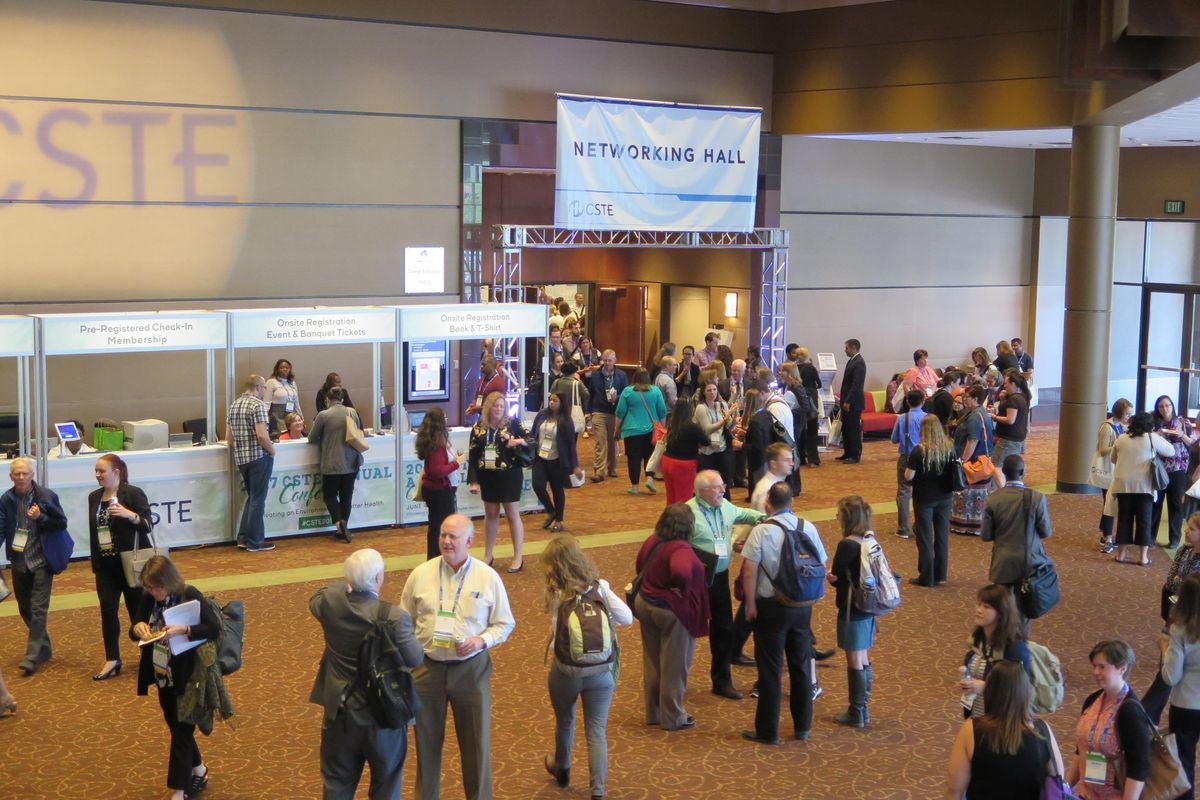N.C.’s loss is Boise’s gain, as huge convention moves due to bathroom bill

BOISE – Every downtown hotel has been booked for months, and good luck getting a dinner reservation – Boise is hosting its largest multiday convention ever at its downtown convention center, and it’s North Carolina’s loss.
The Council of State and Territorial Epidemiologists was originally scheduled to hold its 2017 annual convention in Raleigh, North Carolina. But then North Carolina’s Legislature passed its infamous “bathroom bill,” including the requirement that people use the bathroom that matches the sex on their birth certificate, not their gender identity.
Dr. Jeffrey Engel, CSTE executive director, said the group traditionally honors its president by scheduling its annual convention in his or her home state, and the 2015 president-elect was from North Carolina. Raleigh was booked years in advance for the huge confab; contracts were signed with the Visitors and Convention Bureau and area hotels.
“Then the North Carolina legislature passed HB 2,” Engel said. “Many of our members felt that that was discriminatory, and in fact, some of the jurisdictions said, ‘We’re going to boycott North Carolina,’ and would not let their employees travel to North Carolina on business unless it was an emergency.”
Just a year before the convention, CSTE withdrew from Raleigh and considered bids from three other cities: Boise, Atlanta and Washington, D.C. The group had come to Boise in 2004 when it had 600 people; this time, it was expecting 1,400.
“It was really good timing,” said Mary-Michael Rodgers, communications manager for the Boise Centre, “because we had the space available, and we knew we were completing the expansion.”
A major expansion of the Boise Centre was just finished in April, nearly tripling the size of conventions it can host.
Engel, who lives in Raleigh and was a young state epidemiologist from North Carolina when he attended the group’s last convention in Boise in 2004, said, “It breaks my heart. It’s my home city. … I’m still upset by it, personally.” But he said Boise was “a great alternative,” and has been “extremely accommodating.”
The meeting, he said, “is going really well.”
Instead of the expected 1,400, 1,510 people had registered at the convention by midday Monday, and the number still was growing.
North Carolina partially repealed HB 2 on March 30, but that was long after the convention had been moved to Boise. The state faced a wave of boycotts and lost millions in conventions and other events.
Glen Patrick, an environmental epidemiologist with the Washington state Department of Health in Olympia, said it was his first time in Boise, and he was well aware that the conference moved “because of some politics.”
“I think it’s outstanding,” he said, “to take a question like that that’s of public health significance, and say we’re going to stand by our principles.”
Patrick had high praise for the sparkling, newly expanded convention facility, the walkable downtown and the beautiful surroundings. “This is laid-back,” he said. “It’s still energetic, but there’s just that more relaxed feel that comes with the territory.”
The group sold out 14 Boise hotels and spilled over into others. The Boise Convention and Visitors Bureau and the Greater Boise Auditorium District partnered to run handy shuttles from the center to an array of hotels that weren’t within walking distance. Enthusiastic greeters welcomed conference attendees at the airport, and offered directions and maps at The Grove plaza outside the convention center.
Rodgers said, “The latest economic impact studies say people coming from out of town, attending conventions and staying at downtown hotels spend an average of $275 a day in our local economy.” She figures that when all the ripple effects are taken into account, the five-day convention, which started Sunday, will bring millions in economic impact.
It’s the largest multiday convention the Boise Centre has ever hosted. One larger group came in the past decade, an Amway convention with 2,000 attendees, but it used the Boise Centre only for its banquets, holding its meetings at the nearby Century Link Arena instead.
Rodgers said a convention this large, with meetings, exhibits and meals, typically is booked three to four years in advance, so this was unusual. “It’s a fantastic opportunity for us,” she said.
It’ll be a while before the Boise Centre hosts another gathering quite this big, Rodgers said, but it’s now able to schedule, for example, two 300- to 500-person meetings at the same time, which it never could do before.
“We’re just so thrilled and excited to have the convention in Boise,” she said. “People have had nothing but compliments. … Hopefully this is the first of what will become many, many other conventions.”
The conference is scheduled to close Thursday in Boise.